Over the past decade, tensions between the Iranian central government and its Kurdish minority have been rising, as economic inequality and cultural and ethnic oppression grew. In particular, since the beginning of the 2022 uprising against the Islamic Republic, which spread from Kurdistan to all over Iran after the killing of the 22-year-old Kurdish girl, Jina (Mahsa) Amini, the Iranian regime has escalated its repression against the Kurdish minority.

"Jîna giyan, to namirî, nawit ebête remiz" ("Jina, my soul. You will not die. Your name will become a symbol"), these are the Kurdish words engraved on Jina Amini's gravestone by her family, a few days before she became the national symbol of the revolution against the Islamic Republic of Iran. (Source: See MEMRI Daily Brief No. 425, 40 Days Without Jina – The Revolution Continues In Her Name, October 26, 2022)
Khomeini's "Firman" Against Kurds Still Haunts Them After 43 Years
Hoping to achieve greater autonomy under the rule of Ayatollah Ruhollah Khomeini, Kurds initially supported the 1979 Revolution, as many other Iranians did. However, they soon revolted against the new regime as their demands for basic human and ethnic rights were rejected.
In August 1979, Khomeini issued a firman ("order"), authorizing the massacre of the Kurdish people, whom Khomeini called koffar ("unbelievers").[1] A military campaign to exert control over the Kurdish region between 1979-1983 resulted in almost 10,000 deaths (almost 1,200 of them were political prisoners and were executed). Entire Kurdish towns and villages were shuttered to the ground to force Kurds into submission. Furthermore, the Kurdish language and Kurdish political parties – which Khomeini called "parties of Satan" – were banned.
It is worth noting that, in those years, Ayatollah Sadeq Khalkhali, who was appointed by Khomeini as the Head of the Islamic Revolutionary Court and was known for his public hatred of the Kurds, became known as the "Hanging Judge" because of his usage of summary and mass executions to crush the Kurdish uprising against the Islamic Republic.[2]
In addition, in 1980, Qassem Soleimani, who at the time was just 23 years old, was given the command of a volunteer force from his home province of Kerman, which became the 41st Tharallah Division of the IRGC. This newly formed division was deployed to Iran's Kurdistan province. It was here that Soleimani gained first-hand war experience and rose to prominence for his role in quelling the Kurdish uprising.
Khomeini's firman still has repercussions on how the Iranian central government deals with Kurdistan. Over the past four decades, Kurdish people in Iran have faced intersectional discrimination, and they have been oppressed for both their religious (the majority of Iran's Kurds are Sunni) and ethnic backgrounds.
A report by Iran Human Rights (IHR) stated: "The absolute majority of those executed for their political affiliation belong to ethnic minority groups, and in particular to the Kurdish minority. An overview of IHRNGO reports between 2010 and 2021 shows that among the 137 people who were executed for affiliation to banned political and militant groups, there were 70 Kurds (51%), 38 Baluch (28%) and 21 Arabs (15%). Furthermore, most of those executed from these groups were Sunni Muslims."[3]
The Norway-based Hengaw Organization for Human Rights also reported: "According to Amnesty International's annual report on executions in 2021, with the exception of China, where the number of executions is unknown, at least 597 prisoners have been executed in 17 other countries. Comparing the statistics of this organization with the statistics recorded in the Statistics Center of Hengaw Human Rights Organization, it can be said that more than 8.2% of all executions in the world last year were Kurdish citizens in Iran... According to statistics previously published by Hengaw Human Rights Organization, in 2021, at least 48 Kurdish prisoners were executed in the prisons in Iran, which compared to Amnesty International statistics, shows that... 15.3% of all executions in Iran were Kurdish citizens."[4]
Concerning the year 2022, the Hengaw organization stated: "At least 52 Kurdish citizens were executed and more than 2,212 people were arrested, 155 of whom were tried and sentenced to death, imprisonment, and flogging."[5]

Killing of Kurds, Paveh hospital, 1979 (Source: Nemiran.com)

Kurdish university students executed in Sanandaj (Source: Twitter)
The Execution Of Six Kurds In The Beginning Of 2023
In the first days of 2023, the Islamic Republic executed several Kurdish prisoners, after being tried in sham trials with forced confessions.
On January 4, the following Kurdish detainees were hanged at dawn: Farhad Karimi, from Paveh, charged with "premeditated murder," was executed in Kermanshah; and Saadullah Karimi Sirini, 42 years old, from Kermanshah, charged with "premeditated murder" (no photos of Karimi Sirini were available online).
On January 5, the following Kurdish detainee was hanged in the morning: Rostam Abbaszadeh, 45 years old, married with children, from Selmas, charged with drug possession, executed in the Ghezel Hesar prison of Karaj.
On January 9, the following Kurdish detainees were hanged at dawn: Rashid Lawandpour, from Urmia, his charges were related to "narcotics," was executed in the Rajaei Shahr prison in Karaj; and Khaleq Khizirzadeh, 32 years old, from Piranshahr, his charges were related to "narcotics," was executed in Bandar Abbas, on the southern coast of Iran, almost 2,000 kilometers away from his hometown and family.
On January 10, the following Kurdish detainee was hanged in the morning: Peyman Arab Gicheh, from Urmia. His charges were related to "narcotics" and he was executed in the central penitentiary of Karaj.
The above-mentioned detainees had been arrested in the past few years. Some of them were charged with "deliberate murder," and others with "drug possession" without having a fair trial.[6] The Hengaw Organization for Human Rights wrote: "An informed source says that Farhad Karimi was apprehended and given a death sentence three years ago... for a murder that he did not commit."[7] The organization also reported that the news of Rashid Lawanpour and Khaleq Khizirzadeh's executions was not announced in the official media of the Iranian judiciary.[8]
The execution of the detainees took place while the prison authorities had deprived them of the last meeting with their families.[9] In the case of Rostam Abbaszadeh, on January 4, the head of the prison lied to his family members telling them that he got a "stay of execution," but he was hanged the next day at dawn.[10] It is worth noting that Rostam Abbaszadeh was arrested along with Mehdi Asgari, a 32-year-old father of two from Tehran who was also hanged on January 5 in the Ghezel Hesar prison of Karaj. The two prisoners were charged with drug possession.
*On January 11, 2023, at dawn, three Kurdish citizens, 40-year-old Azad Dadvand from Sardshat, 27-year-old Ali Garavand from Kuhdasht, and 42-year-old Kaiwan Amini Tawakeol from Baneh, were executed in Arak Central Prison after having been charged with drug-related crimes. Hengaw reported that along with these three detainees, two other men whose identities have not been confirmed have also been sentenced to death for drug-related crimes.
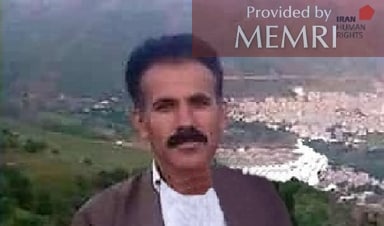
Farhad Karimi (Source: Iran Human Rights)

Khaleq Khizirzadeh (Source: Twitter)

Rashid Lawandpour (Source: Twitter)

Rostam Abbaszadeh (Source: Twitter)
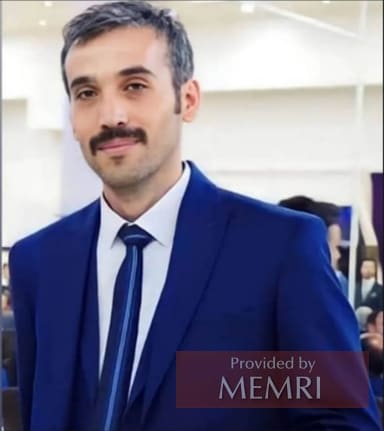
Peyman Arab Gicheh (Source: Twitter)
Executions Of Seyed Mohammad Hosseini And Mohammad Mehdi Karami
On January 7, 2023, Iran hanged Seyed Mohammad Hosseini, a 39-year-old volunteer children's coach, and Mohammad Mehdi Karami, a 22-year-old Kurdish karate champion, for having participated in the uprising against the Islamic Republic.
They were both sentenced to death by hanging for their alleged involvement in the killing of Basij member Ruhollah Ajamian, who died during a demonstration against the regime on November 3, 2022, in Karaj. November 3 was the 40th day of mourning for Hadith Najafi, a 22-year-old woman who was killed by the regime.
Fifteen people were tried for Ajamian's death (though the Shargh daily reported that they were 16). They were sentenced to death along with Dr. Hamid Ghare-Hassanlou, Hossein Mohammadi, and Reza Aria. Dr. Ghare-Hassanlou' wife, Farzaneh, and three minors – Mehdi Shokrollahi, Arian Farzamnia, and Amir-Mehdi Jafari – received lengthy prison terms.[11] On January 3, the Iranian media reported that Amir Hashemi, the Supreme Court's public relations director, informed on Twitter that based on the court's decision, the death sentences for Hamid Ghare-Hassanlou, Hossein Mohammadi and Reza Aria "were being revoked due to a flaw in the investigation."[12]

(Source: Twitter)

(Source: Sabairan.com)
Mohammad Hosseini
Some Kurdish media outlets suggest that Seyed Mohammad Hosseini's ethnicity was Kurdish.[13] However, there is no information about his ethnic background, as his parents died years ago and his brother is being detained in jail. Therefore, there was no one that could talk about him and follow up on his condition.[14] It is known that he was born in Karaj, on February 22, 1983, but his parents were from Tonekabon, Mazandaran Province. Some users of social networks said that he was a poultry worker, making aroung 6 million tomans per month, and used to travel between Qazvin and Karaj every day for his livelihood, besides being a volunteer teaching martial arts to children.[15]
"The story of Seyed Mohammad Hosseini is so sad. He lost both his parents. He visited their graves every Thursday. He coaches kids for free," German politician Ye-One Rhie, who advocated his case, wrote on Twitter. She said that Hosseini was arrested on his way to visit his parents' graves, located in the cemetery in the Behesht Sakineh area of Karaj, where Basij member Ruhollah Ajamian was killed.[16]
Seyed Mohammad Hosseini was charged with Ifsad fi al-Arz ("corruption on earth"). Concerning the trial, Ali Sharifzadeh Ardakani, Hosseini's lawyer, tweeted: "I met with Seyed Mohammad Hosseini at Karaj Prison. He cried through his account of tortures, being beaten with tied hands and legs and blindfolded, to being kicked in the head and losing consciousness, the soles of his feet being beaten with an iron rod to being tased in different parts of the body." He then added: "There is no legal validity to the confessions of a man who has been tortured."[17]

Seyed Mohammad Hosseini during the trial (Source: Twitter)

Seyed Mohammad Hosseini during the trial (Source: Twitter)
It is worth noting that Ali Sharifzadeh Ardakani was not allowed to represent Hosseini in the process of appeals of the death sentence. "This is a gross violation of the rights of a person sentenced to death," he tweeted on December 15. [18]
After being executed, Mohammad Hosseini had no immediate family to receive his body. He was buried next to Mohammad Mehdi Karami's grave in Eshtehard, Alborz. Mehdi's family attended Hosseini's grave, lit candles and placed flowers in his memory.[19]

Mohammad Hosseini's grave (See the full video on Twitter)
Mohammad Mehdi Karami
Mohammad Mehdi Karami, a 22-year-old Kurdish-Iranian karate champion from Bijar, in the Kurdistan province, and a resident of Nazarabad, Karaj city. He was charged with Ifsad fi al-Arz ("corruption on earth"). Media reported that Karami told his family he has been under "severe physical, sexual, and psychological torture." Iran International also said that regime agents sexually harassed him during detention and "threatened to rape him while touching his genitals."[20]
Furthermore, the 1500 Tasvir Twitter account, which is run by activists, reported that, at the time of his arrest, "he was beaten so badly that he was unconscious, and the government forces thought he was dead and threw his body around the Nazarabad court, but when they left, it was discovered that he was still alive."[21]

Mohammad Mehdi Karami (Source: Twitter)

Karami with his family dancing to Kurdish music (See the full video on Twitter)
Karami was denied the right to access his lawyer during detention and even during the court session. It was reported that Karami told his father: "Dad, they have issued the verdicts. My sentence is death... Do not tell mom anything."[22]
The parents tried to plead with the judiciary in order to spare their son's life. "I am Mashallah Karami, father of Mohammad Mehdi Karami," said the father in a video that circulated on social media, along with his wife. "I respectfully ask the judiciary, I beg you please, I ask you... to remove the death penalty from my son's case." However, on January 7, 2023, Karami was executed by hanging.[23]
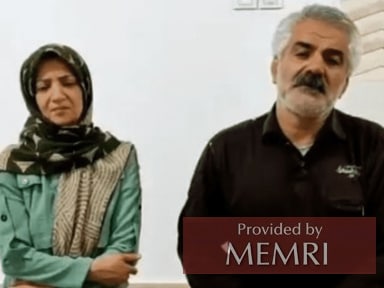
Karami's parents (See the full video on Twitter)
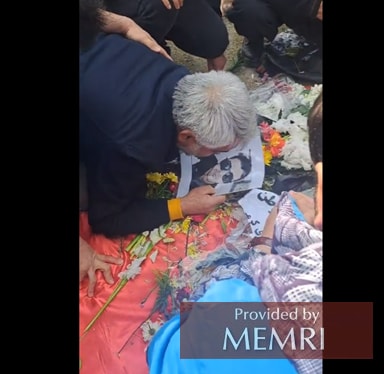
Karami's father at his son's grave. (See full video on Twitter)

Karami's father at his son's grave. The funeral's ritual may suggest that Karami was a follower of the Yarsani religion (Source: Twitter)
*Update: On January 12, 2023, it was reported that Mehdi Karami was a follower of the Yarsani faith, but the family had identified as Shi'ite Muslims to avoid persecution from the Islamic Republic. Yarsani leader Nasreddin Heydari sent condolences over his death.
Kurdish Rapper Tried To Commit Suicide In Prison
SUPPORT OUR WORK

Saman Teimur Seydi, also known as Saman Yasin, is a 24-year-old Kurdish-Iranian rapper, songwriter, and composer from Kermashan who lives in Tehran with his family. Yasin was not arrested at the scene of protests; he was violently abducted by regime security forces at the home of a friend in Tehran at 4 or 5 am on October 2, 2022, three days after his birthday. He was taken to Fashafouyeh Prison, also known as The Greater Tehran Central Penitentiary, and then transferred to Tehran's notorious Evin Prison on October 10.
His whereabouts were not known to his family until televised court proceedings aired on October 29, nearly a month after his arrest. On November 9, Yasin went on hunger strike to protest being denied access to his family and the uncertainty of his situation in Evin. On the second day of his hunger strike, the Security Prosecutor's Office based in Tehran's Evin Prison contacted his family and they managed to meet with him. On November 24, 2022, he met with his family again, for the last time since his arrest. In late November, Yasin was transferred to Rajaei Shahr Prison in the city of Karaj.
Human rights groups say Yasin was tortured in detention to extract a confession. According to Kurdistan Human Rights Network (KHRN), "Saman Yasin has been subjected to severe physical and mental torture to make a televised confession. Being kept in a very cold place for three days, severely beaten, and thrown from a height are among the tortures that this Kurdish artist endured during this period. Reportedly, as a result of this torture, he was forced to make a confession on TV."
On October 29, Iranian state news agencies reported that a court hearing had been held for several arrested protesters, among them Saman Yasin, at the 15th branch of the Islamic Revolutionary Court, presided over by Abolqasem Salavati and without any family members or attorneys present. On the same day, a video of Yasin's forced confession was released by state media.
During the hearing, Salavati accused Yasin of attempting to kill security forces members, alleging that he appears in a video firing a gun three times into the air. Salavati, known as the "Execution Judge" and "Judge of Death" because he has sentenced hundreds to death at Evin prison, further accused Yasin of damaging public property, singing antirevolutionary songs, and supporting the "riots."
Mizan News Agency, the official media outlet of the Iranian judiciary, announced on October 29 that Saman Seydi (Yasin) had been charged with moharebeh ("war against God") and "assembly and collusion with the intention of acting against the security of the country."
Although the news of Yasin's death sentence was published by news agencies and human rights organizations, it has not been officially announced by Iranian state media due to the sensitivity of this case – that is, his Kurdish background. The regime fears that a public announcement of his death sentence would only spark more anti-regime protests in Iranian Kurdistan.
However, on December 8, Hengaw Organization for Human Rights reported that Yasin had been sentenced to death by Branch 15 of the Islamic Revolutionary Court in Tehran and that the sentence had been officially announced to the family. It added that Yasin's sudden transfer from Evin to Rajaei Shahr Prison and the possibility of his imminent execution have caused his family concern.
On December 20, Yasin attempted to commit suicide by taking pills due to his harsh detention conditions in prison in Karaj; he was taken to the hospital to have his stomach pumped, regained consciousness, and was returned to prison (See MEMRI Inquiry & Analysis Series No. 1673, In Iran, Kurdish Rapper Sentenced To Death Based On False Evidence, December 20, 2022).[24]
On December 24, the media reported that Yasin's appeal against his death sentence was accepted. He is now waiting for a retrial. Meanwhile, the Kurdistan Human Rights Network reported that he is suffering from a breathing disorder, caused by torture. "During the interrogation in Ward 241 of Tehran's Evin Prison, Saman was tortured to make forced confessions. During an interrogation session, one of the interrogators inserted a pen into his nose, causing a tear in Saman's left nasal cavity," a source said. Since about a month ago, Yasin has been suffering from nosebleeds and a breathing disorder that worsens at night. Nevertheless, Iranian authorities "have refused to send him to a hospital outside the prison for a check-up and to receive treatment."[25]
The appeal of another protester, Mohammed Ghobadlou, was rejected.[26] Ghobadlou, along with another protester, Mohammad Boroughani, are at imminent risk of execution.[27]

Saman Yasin (Source: Twitter)
Six Kurdish Protesters Sentenced To Death In Oshnavieh For Waging "War Against God"
Farzad Tahazade and Farhad Tahazade, two Kurdish brothers from Oshnavieh, West Azerbaijan Province, were detained by security forces respectively on September 25 and November 13 over participation in the protests. Both were charged with moharebeh ("war against God") and were sentenced to death by the Revolutionary Court of Urmia.[28]
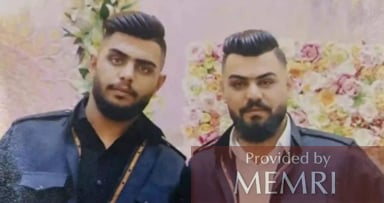
Farzad Tahazade and Farhad Tahazade (Source: Twitter)
Kurdistan Equality Party (KYK), a Kurdish-Iranian political party, said in a statement that the sentence was handed down without trial by Judge Qazi Ali Sheiklo at the Branch 2 of Revolutionary Court of Urmia.
Shahla Peighami, the mother of the two brothers, made a plea to save her sons in a video on December 14. "For the love of God, get to the aid of my sons, they are both innocent. They have been sentenced without a trial without any evidence, they have been tortured, my sons are young and their children are awaiting them," she said.[29]
After the video was shared on social media, Peighami was called in for interrogations to pressure her to stop sounding the alarm on her children's cases.[30]

(Source: Kolbarnews)

Shahla Peighami, the mother of Farzad and Farhad Tahazade, made a plea to save her sons. (See the full video on Twitter)
France politician, Sophie Taillé-Polian, and a member of German parliament, Hakan Demir, have assumed the political sponsorship of Farzad and Farhad, whose executions may be imminent. Demir urged the Iranian ambassador to Germany to stop the execution, saying that "the two brothers shall not be executed."[31] Taillé-Polian wrote in tweet in December: "The international community must break its silence, the French government must act firmly. I carry the voice of the brothers Farzad and Farhad Tahazadeh condemned to death for participating in protests."[32]
On December 14, Hana Human Rights Organization reported that the Revolutionary Court in Urmia issued death sentences to four more protesters from Oshnavieh city, who were detained during the nationwide protests.[33]
The names of the four citizens facing execution for moharebeh ("war against God") are: Karvan Shahiparvaneh, 23 years old; Hajar Hamidi, 35 years old; Shahram Maarouf Molla, 22 years old; and Reza Islamdoost, 24 years old (no photo of Islamdoost are available online).

Karvan Shahiparvaneh (Source: Twitter)

Hajar Hamidi (Source: Twitter)

Shahram Maarouf Molla (Source: Twitter)
It is worth noting that the Judiciary chief of Iran's West Azerbaijan province keeps refuting "claims that six protestors from Oshanvieh had been sentenced to death."[34] However, according to Hengaw Organization For Human Rights, the court-appointed attorney for Farhad Tahazade and Farzad Tahazade has told their mother that the death sentence for their sons was confirmed.[35] Firat News Agency reported that the death sentence was issued for these six Kurdish prisoners in their absence. It also remains unknown where they were transferred from the Urmia Prison. Uncertainty about their condition has caused suspicion that they will soon be executed.[36]
Four Kurdish Political Prisoners May Have Been Already Executed
On July 23, 2022, while doing political activism in Urmia, four members of the secular and social democratic Komala Party of Iranian Kurdistan,[37] were arrested by the forces of the Iranian Ministry of Intelligence, accusing them of being linked to the Mossad. They were charged with "espionage" against the Islamic Republic. Their names are: Pejman Fatihi, 28 years old, from Kamiyaran; Vafa Azarbar, 27 years old, from Bukan; Mohsen Mazloom, 28 years old, from Mahabad; and Mohammad Hazhir Faramarzi, 28 years old, from Dehgolan.

(Source: Hengaw Organization for Human Rights)
News agencies affiliated with the government said: "These individuals (Mossad-linked agents) had identified a sensitive center in Esfahan [home to Iran's largest multi-purpose nuclear research complex], planted strong explosives there, and only a few hours were left until the explosion," when they were arrested.[38]
London-based media outlet Iran International reported: "[The Islamic Republic's intelligence] ministry alleged that they were directly chosen by the [Komala's leader] Abdullah Mohtadi and were introduced to the Mossad, adding that they had transferred vast amounts of equipment and explosives to Iran through Iraq's autonomous Kurdistan region." [39]
However, the accusation that they were in Esfahan is contradicted by the fact that they were detained in the village of Yengejeh in the Soma and Bradost of Urmia, in northwestern Iran.[40]
A family member of one of the detainees also said in an interview with Kurdistan Human Rights Network (KHRN): "Contrary to the claims of the Ministry of Intelligence, these people were sent to Urmia only to carry out organizational and political work and did not have any weapons with them."[41]
Hengaw Organization For Human Rights wrote that the Islamic Republic of Iran Broadcasting (IRIB) aired the four political prisoners' "forced confession" for the second time on December 5, 2022, in which it is evident that the four Komala members were severely tortured. "The signs of harsh torture are clearly visible in the video of these citizens' forced confessions, and this issue highlights the precarious circumstances of their detention," Hengaw wrote.[42]
In December 2022, the young wife of Mohsen Mazloom, Joanna Taimasi, published a video stating: "More than four months have passed since my husband and his three friends were arrested, and despite the frequent appeals of families and their lawyers... the Iranian regime has not given any response to their families and even threatened and interrogated them. After 80 days of not knowing the whereabouts and physical health [of the four political prisoners], forced confessions were aired by the regime media... Mohsen, Pejman, Vafa and Mohammad have been in the most difficult situation for more than four months.
"The physical and mental torture of these four Kurdish political prisoners can be clearly seen in their forced confessions... Please help these four Kurdish political prisoners and do not let the Islamic Republic dictatorship that silently issues unfair sentences for loved ones in courts. I demand a fair trial for my husband and his three friends in the presence of their families and an independent lawyer. Please, be our voice."[43]

(See the full video on Twitter)

Mohsen Mazloom and his wife Joanna Taimasi (Source: Twitter)
The Komala party said that "the Islamic Republic raises such false accusations, in order to use them as a pretext for further crackdown on the Kurdish minority and as part of propaganda against the Iranian people's righteous struggles."[44]
In a statement, the Kurdistan Human Rights Network said: "The security agencies of the Islamic Republic of Iran have repeated fictitious scenarios by attempting to link the detained Komala members to Israel's Mossad, raising concerns about their fate."[45]
The Campaign to Free Political Prisoners in Iran (CFPPI) also wrote: "On July 27, the Ministry of Intelligence of the Islamic regime made a bogus claim that these four activists are members of a 'terrorist team sent to Iran by the Israeli intelligence organization, Mossad, to carry out explosions and sabotage. This type of fabricating cases against political prisoners is very common and often used by the Islamic regime to arrest and execute political activists.
"The bogus charge of 'Cooperating and Communication with Israel' ... carries the punishment of the death penalty. The regime in Iran, intentionally, links these activists to Mossad by creating these baseless cases against them...
"These four political activists are not allowed to contact their families and the families do not know of their situations or their whereabouts. By keeping these families in the dark, they are being pressured by the regime not to speak up about their jailed children. Based on previous cases, without any doubt, these detainees are being severely tortured to pressure them to make forced confessions. The regime then uses forced confession to sentence each of these activists to either execution or a lengthy prison sentence. This is also another attempt by the Islamic regime to further increase the number of security forces and their presence within the province of Kurdistan in Iran, where these four activists are from, in order to confront upcoming protests."[46]
On December 6, 2022, Radio Farda reported that the rebroadcast of their forced confessions by state media has raised fears that the four Kurdish prisoners may have been executed.[47]
On December 8, Joanna Taimasi, the wife of Mohsen Mazloum, wrote in a tweet that her husband "loves life and like every freedom-loving person wants an equal world without discrimination. But now he has fallen into the hands of the bloodthirsty and dictatorial regime." She said I hold the Islamic Republic "responsible for the lives of my husband and his three friends."[48]
Pejman Fatihi's mother, Afsane Yousefi, also pleaded in a video for her son's release and rights.[49] She said: "It has been six months since [the Iranian] intelligence has arrested my son. I went to every intelligence department and prison, but they did not tell me the truth... I have cancer. Pejman has no father, no brother, and no relative to follow up on his issue. His wife and child are wandering and waiting. I ask the people of the world and human rights associations, and anyone who can do anything, to defend my son. My expectation from the Islamic Republic is that my son will call me or meet him and show him to me. I want to know if he is alive and what have they done with him. Let me meet him. Allow me to call my son to see if he is alive. I want to know what happened to him. I am begging the whole world, please defend my son, let your voice be Pejman's voice. For Sabah [his son] and Bayan [his wife]."[50]
*Update: On January 15, 2023, Badia Sharifpour, the mother of Mohammad Hazhir Faramarzi, also pleaded in a video for her son's release and rights. (See the full video on Twitter)
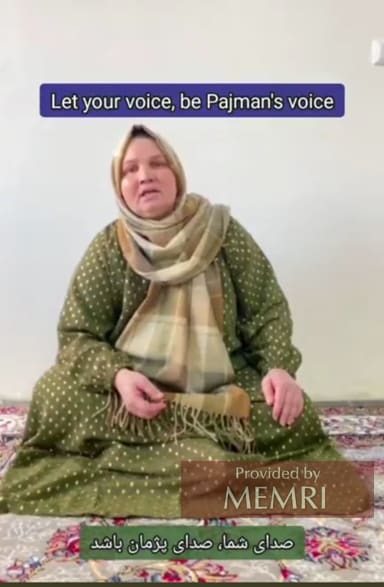
(See the full video on Twitter)
Conclusion
Although Kurds make up less than 15 percent of Iran's population, the NGO Iran Human Rights (IHR) stated on December 7 that out of 458 Iranian civilians killed in the protests, more than 130 are Kurds, which comprises 28 percent of the deaths and shows that the Kurdish region is paying one of the highest tolls in this uprising.[51] The numbers also indicate that the Kurdish people in Iran are targeted because of their ethnic and religious background.
It is worth noting that the Persian opposition abroad often refuses to mention the ethnic identity of Kurdish victims or even to cooperate with the Kurdish opposition. Any mention of Kurdish grievances or their cultural and ethnic demands is viewed as a "separatist" plot aimed at dividing Iran. By the same token, in an article published last December, state-controlled Press TV tried to invalidate Kurds' legitimate demands, stating that "ethnic rhetoric has been widely used since the beginning of the unrest in Iran in mid-September, with a special focus on Kurds, to promote division and tension among Iran's different ethnicities and back a 'divide-Iran' policy."[52]
However, in order to bring about regime change, the Persian opposition needs to start acknowledging the rightful demands of the Kurdish people. This uprising can succeed only if all of Iran's ethnicities stick together, which should start with recognizing not only each other's basic human rights, but also ethnic and religious rights.
*Himdad Mustafa is a Kurdish scholar and expert on Kurdish and Iranian affairs.
[1] G. Chaliand,"Iranian Kurds under Ayatollah Khomeini," in A people Without a Country: The Kurds and Kurdistan. 1993. Pp. 211-212; Youtube.com/watch?v=5vUpo1OrPCI
[2] Allan Hassaniyan. Kurdish Politics in Iran. 2021. pp.98-100; Steven Ward. Immortal: A Military History of Iran and its Armed Forces. 2009. pp.231–233; Michael M. Gunter. Historical Dictionary of the Kurds. 2010. p. 159
[3] Iranhr.net/media/files/Annual_Report_on_the_Death_Penalty_in_Iran_2021_BwW7LPR.pdf, 2021
[4] Hengaw.net/en/news/in-2021-more-than-8-of-all-executed-prisoners-in-the-world-were-kurdish-prisoners-in-iran, May 24, 2022.
[5] Hengaw.net/en/news/2022/12/hengaw-organizations-yearly-report-on-human-rights-violations-in-iranian-kurdistan-2022, December 30, 2022.
[6] Hengaw.net/en/news/2023/01/in-kermanshah-and-karaj-prisons-three-kurdish-prisoners-were-executed-by-hanging, January 5, 2023; Hengaw.net/so/news/2023/01/%D8%AC%DB%8E%D8%A8%DB%95%D8%AC%DB%8E%DA%A9%D8%B1%D8%AF%D9%86%DB%8C-%D8%B3%D8%B2%D8%A7%DB%8C-%D8%B3%DB%8E%D8%AF%D8%A7%D8%B1%DB%95%DB%8C-%D9%87%D8%A7%D9%88%D9%88%DA%B5%D8%A7%D8%AA%DB%8C%DB%8C-%DA%A9%D9%88%D8%B1%D8%AF-%D9%84%DB%95-%D8%A8%DB%95%D9%86%D8%AF%DB%8C%D8%AE%D8%A7%D9%86%DB%95%DB%8C-%DA%95%DB%95%D8%AC%D8%A7%DB%8C%DB%8C%D8%B4%D8%A7%D8%B1%DB%8C-%DA%A9%DB%95%D8%B1%DB%95%D8%AC
[7] Hengaw.net/en/news/2023/01/in-kermanshah-and-karaj-prisons-three-kurdish-prisoners-were-executed-by-hanging, January 5, 2023.
[8] Hengaw.net/en/news/2023/01/the-death-sentences-of-two-kurdish-prisoners-were-carried-out, January 9, 2023.
[9] Hengaw.net/en/news/2023/01/in-kermanshah-and-karaj-prisons-three-kurdish-prisoners-were-executed-by-hanging, January 5, 2023.
[10] En.iranhrs.org/four-prisoners-executed-in-qezel-hesar-and-dieselabad-prisons-in-kermanshah/, January 6, 2023.
[11] See MEMRI Inquiry & Analysis Series No. 1672, Compassionate Doctor Sentenced To Death In Iran, December 16, 2022.
[12] Rferl.org/a/iran-revokes-death-sentences-three-protesters/32205510.html, January 3, 2023.
[13] Basnews.com/en/babat/790170, January 7, 2023.
[14] Radiozamaneh.com/748258/, January 7, 2023.
[15] Radiozamaneh.com/748258/, January 7, 2023.
[16] Edition.cnn.com/2023/01/07/middleeast/iran-protesters-executed-intl-hnk/index.html, January 7, 2023.
[17] Iranintl.com/en/202212190250, December 19, 2022.
[18] Iranintl.com/en/202212190250, December 19, 2022.
[19] Twitter.com/1500tasvir_en/status/1612119959815036930, January 8, 2023.
[20] Iranintl.com/en/202212108015, December 10, 2022.
[21] Thenationalnews.com/world/2022/12/13/iranian-protester-sentenced-to-death-tells-father-dont-tell-mum/, December 13, 2022.
[22] Iranwire.com/en/prisoners/111212-father-of-iranian-protester-sentenced- to-death-says-designated-lawyer-doesnt-answer-phone-calls/, December 12, 2022.
[23] Siasat.com/iran-parents-plead-with-judiciary-to-spare-son-on-death-row-2483905/, December 20, 2022.
[24] See MEMRI Inquiry & Analysis Series No. 1673, In Iran, Kurdish Rapper Sentenced To Death Based On False Evidence, December 20, 2022.
[25] Kurdistanhumanrights.org/en/tortured-kurdish-rapper-denied-medical-care-outside-prison/, January 10, 2023.
[26] Reuters.com/world/middle-east/iran-supreme-court-accepts-appeals-two-protesters-sentenced-death-2022-12-24/, December 24, 2022.
[27] See MEMRI Tv clip n. 10045, Iranians Protest Against Impending Executions Of Mohammad Ghobadlou And Mohammad Boroughani: There Will Be An Uprising If You Carry Out The Executions! This Is The Year Of Bloody Uprising, Khamenei Will Be Toppled!, January 8, 2023.
[28] Iranwire.com/en/politics/111297-iran-protest-crackdown-alarm-raised-over-imminent-execution-of-two-kurdish-brothers/, December 14, 2022.
[29] Rudaw.net/english/middleeast/iran/14122022, December 14, 2022.
[30] Twitter.com/HengawO/status/1602969235818713089?s=20&t=ygmWYIxJ-u4oJQOz52OFHQ, December 14, 2022.
[31] Mobile.twitter.com/HakanDemirNK/status/1605157514810646528?cxt=HHwWgICz7aqQ1cYsAAAA, December 20, 2022.
[32] Twitter.com/STaillePolian/status/1604139077170655232?cxt=HHwWgMCjkbv_hcMsAAAA, December 17, 2022.
[33] Hana-hr.org/content/20221215-orumieh-four-other-arrested-citizens-sentenced-to-death-by-the-islamic-republic-s-judiciary, December 15, 2022; Jinhaagency.com/en/actual/uprising-in-iran-enters-its-88th-day-public-anger-grows-32442, December 13, 2022.
[34] Rudaw.net/english/middleeast/iran/14122022, December 14, 2022.
[35] Twitter.com/1500tasvir_en/status/1603005570352664577, December 14, 2022.
[36] Anfenglish.com/human-rights/unable-to-crush-protests-iranian-regime-turns-to-executions-64427, December 21, 2022.
[37] Komalainternational.org/
[38] Iranintl.com/en/202207243953, July 24, 2022.
[39] Iranintl.com/en/202207273526, July 27, 2022.
[40] Hengaw.net/en/news/2022/12/the-severe-condition-of-four-kurdish- political-prisoners-who-are-facing-torture-forced-confessions-
and-framing- up-cases-raise-concern, December 15, 2022.
[41] Kurdistanhumanrights.org/en/concerns-grow-over-detained-komala-members-fate/, August 3, 2022.
[42] Hengaw.net/en/news/2022/12/the-severe-condition-of-four-kurdish -political-prisoners-who-are-facing-torture-forced-confessions-
and- framing-up-cases-raise-concern, December 15, 2022.
[43] Twitter.com/Hengaw_English/status/1601336407523356673, December 10, 2022.
[44] Twitter.com/IranIntl_En/status/1552357402145595392?ref_src=twsrc%5Etfw%7Ctwcamp%5Etweetembed%7
Ctwterm%5E1552357402145595392%7Ctwgr%5E75d7af03883c74af5f654a0b3f35b05dad292905%7Ctwcon%5Es1
_&ref_url=https%3A%2F%2Fd-32084236313900094774.ampproject.net%2F2301031703000%2Fframe.html, July 27, 2022.
[45] Kurdistanhumanrights.org/en/concerns-grow-over-detained-komala-members-fate/, August 3, 2022.
[46] Cfppi.org/2022/08/17/the-lives-of-four-political-activists-peshmerga-are-in-danger-in-iran/, August 17, 2022.
[47] Rferl.org/a/iran-confessions-four-kurds-executed-mossad/32164716.html, December 6, 2022.
[48] Twitter.com/JTeimasi/status/1600794037262614529?cxt=HHwWgoDQ2cHslLcsAAAA, December 8, 2022.
[49] Twitter.com/PanahiRafiq/status/1610352079700197384?t=-yYAgsgQ0TUId2OSPpdePw&s=19
[50] Twitter.com/Kamran43453852/status/1610476444966129664, January 4, 2023.
[51] Institutkurde.org/info/at-least-201-dead-including-23-children-1-800-injured-and-over-2-400-arrest-1232552182, December 7, 2022.
[52] Presstv.ir/Detail/2022/12/16/694575/Iranian-Man-Admits-Murder-Western-Media-Insists-On-His-Innocence, December 16, 2022.




